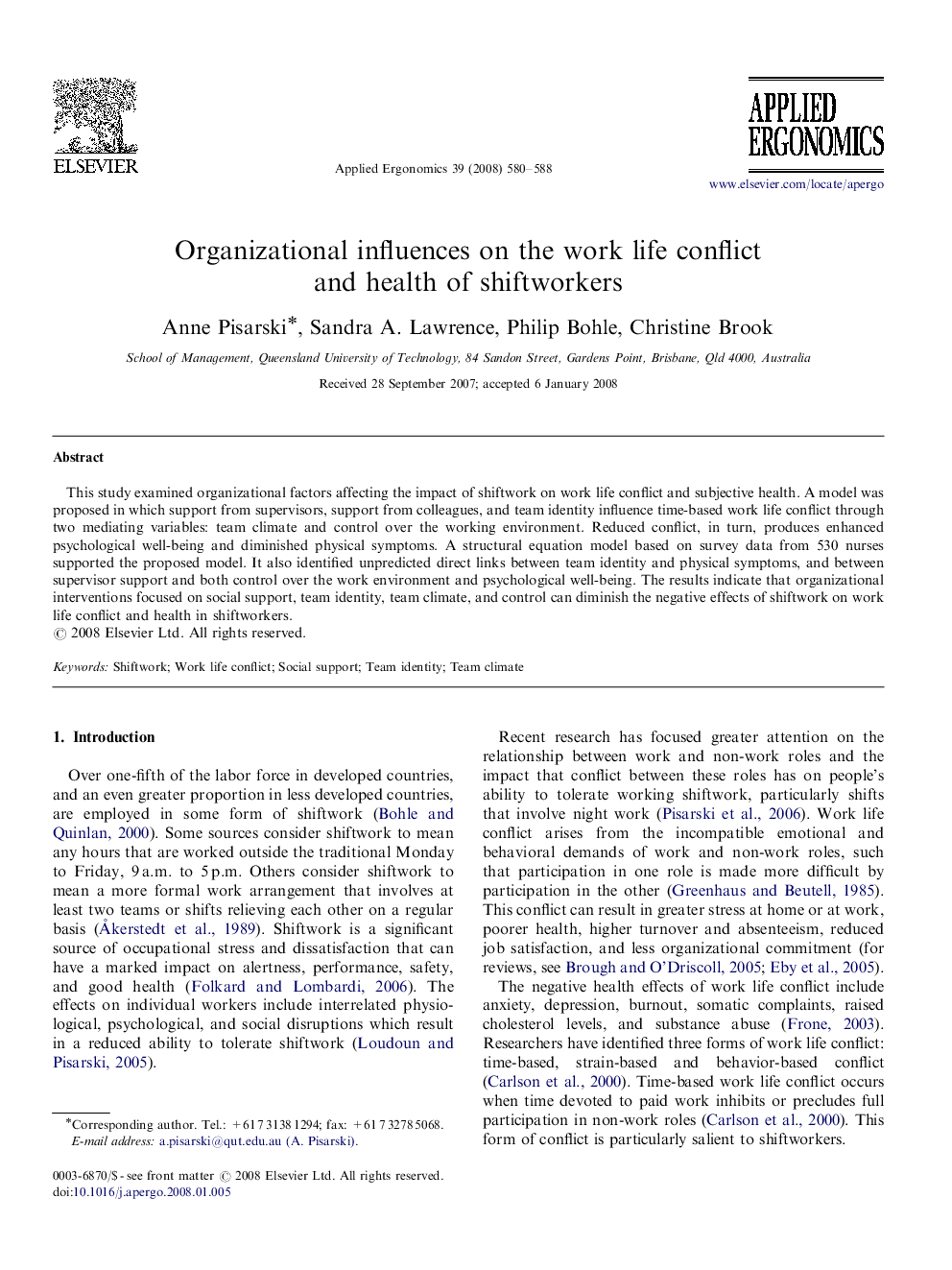| Article ID | Journal | Published Year | Pages | File Type |
|---|---|---|---|---|
| 548672 | Applied Ergonomics | 2008 | 9 Pages |
This study examined organizational factors affecting the impact of shiftwork on work life conflict and subjective health. A model was proposed in which support from supervisors, support from colleagues, and team identity influence time-based work life conflict through two mediating variables: team climate and control over the working environment. Reduced conflict, in turn, produces enhanced psychological well-being and diminished physical symptoms. A structural equation model based on survey data from 530 nurses supported the proposed model. It also identified unpredicted direct links between team identity and physical symptoms, and between supervisor support and both control over the work environment and psychological well-being. The results indicate that organizational interventions focused on social support, team identity, team climate, and control can diminish the negative effects of shiftwork on work life conflict and health in shiftworkers.
